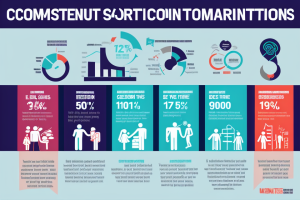
Are fast-paced games good for your brain? This is a question that has been debated by experts for years. On one hand, these games are known to improve hand-eye coordination, reaction time, and problem-solving skills. They also provide a fun and engaging way to stimulate the mind. On the other hand, excessive playing of fast-paced games can lead to addiction, anxiety, and even health problems. In this article, we will explore the benefits and drawbacks of playing fast-paced games and determine whether they are good for your brain or not. So, buckle up and get ready for an exciting ride!
Quick Thinking Games: What Are They?
Defining Quick Thinking Games
Quick thinking games are a type of video game that require players to make rapid decisions and respond to stimuli in a short amount of time. These games often involve fast-paced action, challenging puzzles, and intense competition. Some examples of quick thinking games include first-person shooters, racing games, and strategy games.
Quick thinking games are designed to challenge players’ ability to think and react quickly. They often require players to multitask, pay attention to multiple stimuli at once, and make split-second decisions. This type of gameplay can be mentally stimulating and can improve players’ cognitive abilities, such as reaction time, decision-making, and problem-solving skills.
However, it is important to note that quick thinking games are not without their drawbacks. Prolonged exposure to these types of games can lead to negative effects on mental health, such as increased aggression and decreased impulse control. Additionally, some quick thinking games may promote unhealthy behaviors, such as excessive gaming and gambling.
In the next section, we will explore the potential benefits and drawbacks of playing quick thinking games.
Examples of Quick Thinking Games
- Fast-paced games require quick thinking and decision-making skills.
- They often involve complex rules and strategies that must be mastered in order to succeed.
- Examples of quick thinking games include action-based video games, card games like poker, and sports such as football and basketball.
- These games challenge players to react quickly and make split-second decisions in high-pressure situations.
- They can be played individually or in teams, and can be found in both physical and digital formats.
- While some people may view fast-paced games as a waste of time, research suggests that they can have a number of cognitive benefits.
- However, it is important to note that not all fast-paced games are created equal, and some may be more beneficial than others.
- It is also important to balance gameplay with other forms of mental stimulation, such as reading or puzzle-solving, to maintain overall cognitive health.
The Benefits of Playing Quick Thinking Games
Improving Cognitive Skills
Research has shown that playing fast-paced games can improve cognitive skills such as reaction time, memory, and decision-making. These skills are essential for daily life and can be beneficial in both personal and professional settings.
Reaction Time
Reaction time is the speed at which an individual responds to a stimulus. Playing fast-paced games can improve reaction time by increasing the speed at which the brain processes information. This improvement can lead to faster decision-making and quicker responses in high-pressure situations.
Memory
Memory is the ability to retain and recall information. Fast-paced games require players to remember game rules, strategies, and patterns. This repetition can lead to improved memory retention and recall abilities. Additionally, some games require players to memorize complex sequences of actions, which can further enhance memory skills.
Decision-Making
Decision-making is the process of selecting a course of action based on available information. Fast-paced games often require players to make split-second decisions based on the current situation. This can improve decision-making skills by training the brain to think quickly and efficiently under pressure.
Overall, playing fast-paced games can provide a fun and engaging way to improve cognitive skills that are essential for daily life. However, it is important to note that excessive gaming can also have negative effects on cognitive function, so it is important to find a balance between gaming and other activities.
Enhancing Problem-Solving Abilities
Playing fast-paced games has been shown to improve problem-solving abilities. These games require quick thinking and decision-making, which can enhance cognitive skills and brain function. Here are some ways in which problem-solving abilities can be improved through playing fast-paced games:
Improving Attention and Focus
Fast-paced games require a high level of attention and focus, as players must constantly monitor their surroundings and make split-second decisions. This can improve attention and focus skills over time, as players become better at blocking out distractions and concentrating on the task at hand.
Enhancing Spatial Reasoning
Many fast-paced games, such as puzzle games and first-person shooters, require players to use spatial reasoning skills to navigate and manipulate their environment. This can improve spatial reasoning abilities over time, as players become better at visualizing and manipulating objects in their environment.
Boosting Multitasking Abilities
Fast-paced games often require players to multitask, as they must manage multiple tasks simultaneously, such as navigating their environment, fighting enemies, and collecting resources. This can improve multitasking abilities over time, as players become better at juggling multiple tasks and prioritizing their actions.
Increasing Strategic Thinking
Fast-paced games often require players to develop and execute strategies in order to succeed. This can improve strategic thinking abilities over time, as players become better at analyzing situations, making decisions, and adapting to changing circumstances.
Overall, playing fast-paced games can provide a range of cognitive benefits, including improved problem-solving abilities, attention and focus, spatial reasoning, multitasking, and strategic thinking. While there may be some drawbacks to playing these games, the potential benefits make them a worthwhile activity for those looking to improve their cognitive skills and brain function.
Boosting Multitasking Capabilities
Fast-paced games can provide numerous cognitive benefits, particularly in enhancing multitasking capabilities. These games often require players to process multiple pieces of information simultaneously, which can improve attention and memory. Here’s a closer look at how playing quick thinking games can boost multitasking capabilities:
- Divided Attention: Fast-paced games often involve multiple tasks that need to be completed in quick succession. For example, in a racing game, the player needs to manage steering, accelerating, and braking, all while avoiding obstacles and opponents. These tasks require the player to divide their attention among multiple stimuli, which can improve their ability to multitask in real-life situations.
- Reaction Time: Quick thinking games often require rapid responses to changing situations. For instance, in a first-person shooter game, the player needs to quickly react to incoming enemy fire and move to avoid being hit. These games can improve reaction time, which is a crucial skill in many real-life situations, such as driving or sports.
- Working Memory: Fast-paced games can also enhance working memory, which is the ability to hold and manipulate information in short-term memory. For example, in a puzzle game, the player needs to remember the rules and goals of the game while also keeping track of their progress. These games can improve working memory by increasing the amount of information that can be held in short-term memory and the speed at which it can be processed.
- Executive Functions: Fast-paced games can also improve executive functions, which are the cognitive processes that enable us to plan, organize, and prioritize tasks. These games often require players to make strategic decisions and adapt to changing circumstances, which can improve executive functions such as cognitive flexibility and inhibitory control.
Overall, playing fast-paced games can provide a range of cognitive benefits, particularly in enhancing multitasking capabilities. However, it’s important to note that these benefits are not universal and may depend on individual differences in cognitive abilities and game design.
Potential Drawbacks of Quick Thinking Games
Cognitive Overload
Quick thinking games can be mentally stimulating, but they may also cause cognitive overload. This occurs when the brain becomes overwhelmed by the fast pace and complex nature of the game, leading to decreased performance and potential negative effects on mental health.
Lack of Real-World Skills
While quick thinking games may improve certain cognitive abilities, they do not necessarily translate to real-world skills. In fact, excessive reliance on these games may hinder the development of practical problem-solving and decision-making skills.
Social Isolation
Playing quick thinking games in isolation can lead to a decrease in social interaction and interpersonal skills. This is particularly concerning for younger individuals who may not have fully developed their social skills.
Addiction
Quick thinking games can be highly addictive, leading to compulsive behavior and negative effects on mental health. This is particularly concerning for individuals who may have pre-existing mental health conditions.
Decreased Attention Span
Playing quick thinking games may lead to a decrease in attention span and an inability to focus on tasks for extended periods of time. This can have negative effects on academic and professional performance.
Overall, while quick thinking games may offer some benefits, it is important to be aware of the potential drawbacks and to moderate gameplay accordingly.
Addiction and Excessive Gaming
Excessive gaming can lead to addiction, which can have serious consequences for a person’s mental and physical health. According to a study published in the journal “Addictive Behaviors,” excessive gaming can lead to symptoms of addiction such as increased tolerance, withdrawal, and negative effects on daily life.
Another study published in the “Journal of Psychiatric Research” found that excessive gaming can also lead to changes in brain structure and function, including decreased gray matter volume in the prefrontal cortex, which is responsible for decision-making and impulse control.
However, it is important to note that not all research points to negative effects of excessive gaming. Some studies have found that moderate gaming can have cognitive benefits, such as improved attention and memory. It is also important to consider individual differences in personality and behavior when examining the effects of gaming on the brain.
Overall, while excessive gaming can have negative consequences, moderate gaming may have cognitive benefits. It is important to find a balance and engage in moderate gaming habits to reap the potential benefits while avoiding the negative effects of addiction.
Negative Impact on Social Skills
While fast-paced games may offer cognitive benefits, they can also have a negative impact on social skills. Excessive gaming can lead to a decrease in face-to-face communication and an increase in antisocial behavior. This can result in isolation and a lack of empathy towards others. Additionally, the fast-paced nature of these games can create a false sense of accomplishment, leading to an overestimation of one’s abilities and an underestimation of the effort required to succeed in real-life situations. Therefore, it is important to strike a balance between gaming and social interactions to ensure healthy cognitive and social development.
Health Risks Associated with Extended Gaming Sessions
Prolonged gaming sessions can pose significant health risks for players, including:
- Eye strain: Staring at a screen for extended periods can cause eye fatigue, dryness, and even headaches.
- Sleep disturbances: The stimulating nature of fast-paced games can make it difficult for players to wind down and fall asleep after a long gaming session.
- Obesity: Sitting for extended periods while playing games can contribute to a sedentary lifestyle, which increases the risk of obesity and related health issues.
- Dehydration: Players may forget to drink water or stay hydrated while gaming, leading to dehydration over time.
- Poor posture: Hunching over a screen for extended periods can cause poor posture, back pain, and even chronic pain conditions.
- Social isolation: While online gaming can provide social interaction, excessive gaming can lead to isolation from real-life social activities and relationships.
It is essential for players to take breaks, maintain a balanced lifestyle, and prioritize self-care to mitigate these health risks associated with extended gaming sessions.
How to Play Quick Thinking Games Responsibly
Setting Time Limits
While fast-paced games can offer cognitive benefits, it is important to approach them responsibly. One way to do this is by setting time limits for gameplay. This involves:
- Monitoring the amount of time spent playing: Setting a specific time limit for each gaming session can help prevent excessive or unhealthy gaming habits. It is essential to prioritize other daily activities and responsibilities over gameplay.
- Balancing gameplay with other activities: It is crucial to maintain a balance between gaming and other essential activities such as work, school, socializing, and physical exercise. This ensures that the individual’s overall well-being is not negatively impacted by excessive gaming.
- Adjusting the time limit based on individual needs: The time limit should be adjusted based on individual needs and preferences. Some individuals may benefit from shorter gaming sessions, while others may have the ability to engage in longer sessions without experiencing negative effects.
- Avoiding prolonged periods of gameplay: It is important to avoid extended periods of gameplay, as this can lead to fatigue, eye strain, and decreased productivity. Taking regular breaks during gameplay can help prevent these issues and promote overall well-being.
- Gradually increasing time limits: For individuals who are new to fast-paced games, it may be helpful to gradually increase the time limit over time. This allows the individual’s brain to adapt to the cognitive demands of the game and prevents overwhelming.
By setting time limits and monitoring gaming habits, individuals can engage in fast-paced games while minimizing potential negative effects on their cognitive and overall well-being.
Balancing Gaming with Other Activities
Balancing gaming with other activities is essential for maintaining a healthy lifestyle. It is important to remember that while fast-paced games can provide cognitive benefits, they should not be the sole focus of one’s life. A well-rounded individual must find a balance between gaming and other activities such as socializing, exercising, and pursuing hobbies.
One way to balance gaming with other activities is to set a specific time limit for gaming each day or week. This allows for ample time for other activities while still allowing for some gaming time. It is also important to engage in a variety of activities to keep things interesting and to prevent burnout. For example, if one is a avid gamer, it may be beneficial to take a break from gaming and engage in a physical activity such as hiking or swimming.
Additionally, it is important to prioritize responsibilities such as work, school, and family. Gaming should not interfere with these obligations and should be done in moderation. It is also important to be mindful of the amount of time spent gaming and to set boundaries for oneself. For example, setting a rule that gaming cannot be done during family dinner time or during study hours.
Finally, it is important to maintain a healthy social life. While gaming can be a fun and rewarding experience, it should not replace in-person interactions with friends and family. It is important to make time for socializing and to engage in activities with others outside of gaming.
In conclusion, balancing gaming with other activities is crucial for maintaining a healthy lifestyle. Setting limits, engaging in a variety of activities, prioritizing responsibilities, and maintaining a healthy social life are all important aspects of achieving this balance.
Choosing Games That Promote Positive Development
When it comes to playing fast-paced games, it’s important to choose those that promote positive development. Here are some factors to consider:
- Skill development: Look for games that require strategic thinking, problem-solving, and decision-making skills. These games can help improve cognitive abilities and enhance overall brain function.
- Social interaction: Some games are designed to encourage social interaction and teamwork, which can be beneficial for building communication and collaboration skills.
- Motivation and engagement: Choose games that are challenging yet achievable, and that offer a sense of accomplishment and progress. This can help keep players motivated and engaged, while also providing a sense of satisfaction.
- Balance and variety: To promote positive development, it’s important to play a variety of games that offer different challenges and experiences. Avoid getting stuck in a rut with one particular game or genre, and mix things up to keep your brain engaged and stimulated.
- Moderation: As with any activity, it’s important to practice moderation when it comes to playing fast-paced games. While these games can offer many benefits, it’s important to avoid overdoing it and to take breaks to give your brain a rest and recharge.
By choosing games that promote positive development, you can enjoy the benefits of fast-paced gaming while also supporting your overall cognitive and social growth.
Weighing the Pros and Cons
While fast-paced games can offer cognitive benefits, it is important to weigh the pros and cons before diving in. Here are some factors to consider:
- Mental Stimulation: Fast-paced games require quick thinking and decision-making, which can help keep your mind sharp. They can improve your reaction time, memory, and cognitive flexibility.
- Risk of Addiction: Like any form of entertainment, playing fast-paced games can be addictive. Spending too much time on gaming may lead to neglecting other important aspects of life, such as work, relationships, or personal hobbies.
- Positive Social Interaction: Multiplayer games can provide opportunities for positive social interaction and teamwork. They can help build communication skills and foster relationships with like-minded individuals.
- Negative Social Interaction: However, some fast-paced games may promote toxic behavior, such as aggression, competition, and bullying. These negative interactions can have a detrimental effect on mental health and well-being.
- Brain Break: Fast-paced games can serve as a temporary “brain break” from the demands of daily life. They can provide a much-needed respite from stress and help you recharge your batteries.
- Cognitive Overload: On the other hand, fast-paced games can also cause cognitive overload, especially if you are playing for extended periods of time. This can lead to mental fatigue and even impair your ability to perform well in other areas of your life.
In conclusion, while fast-paced games can offer cognitive benefits, it is important to weigh the pros and cons before playing. By playing responsibly and balancing your gaming habits with other activities, you can reap the potential benefits while minimizing the risks.
Fostering a Healthy Gaming Habit
When it comes to playing fast-paced games, it’s important to approach them with a responsible mindset. Here are some tips for fostering a healthy gaming habit:
- Set Limits: It’s important to set limits for yourself when it comes to gaming. This means setting a specific time limit for how long you’ll play, and sticking to it. It’s also important to take breaks and step away from the game every so often to avoid over-exertion.
- Stay Hydrated: Staying hydrated is crucial for both physical and mental health. It’s important to take regular breaks to drink water and stay hydrated while playing fast-paced games.
- Stay Focused: Playing fast-paced games requires focus and concentration. It’s important to eliminate distractions and find a quiet, comfortable space to play. This will help you stay focused and fully immerse yourself in the game.
- Maintain a Balanced Lifestyle: While fast-paced games can be a fun and engaging way to challenge your brain, it’s important to maintain a balanced lifestyle. This means incorporating physical activity, socializing with friends and family, and pursuing other hobbies and interests outside of gaming.
- Play with Purpose: Playing fast-paced games can be a great way to challenge your brain and improve cognitive function. It’s important to approach the games with purpose and focus on specific goals or objectives. This will help you get the most out of your gaming experience and ensure that you’re making the most of your time.
Encouraging Mindful Gaming Practices
Mindful gaming practices involve playing games in a way that is beneficial to both your brain and overall well-being. Here are some tips to encourage mindful gaming:
- Play in Moderation: Fast-paced games can be mentally stimulating, but overindulging in them can have negative effects on your brain. It’s essential to take breaks and play in moderation to avoid addiction and mental fatigue.
- Choose Quality Over Quantity: Instead of playing multiple fast-paced games, it’s better to focus on a few high-quality games that offer more substantial cognitive benefits. This approach allows you to fully engage with the game and derive more significant benefits from the experience.
- Play with Purpose: Choose games that align with your interests and goals. For example, if you’re interested in improving your memory, you can choose games that focus on memory and cognitive skills. Playing games with a purpose can make the experience more enjoyable and beneficial.
- Practice Mindfulness: Mindfulness can help you stay present and focused during gameplay. It involves paying attention to the game, your thoughts, and your emotions without judgment. By practicing mindfulness while gaming, you can improve your cognitive skills and reduce stress.
- Engage in Social Gaming: Playing games with friends and family can provide a sense of connection and belonging. Social gaming can also help improve communication and collaboration skills, leading to better relationships and a stronger sense of community.
By following these tips, you can engage in mindful gaming practices that are beneficial to your brain and overall well-being. Remember, it’s essential to strike a balance between gaming and other aspects of your life to ensure a healthy and fulfilling lifestyle.
FAQs
1. What are fast-paced games?
Fast-paced games are video games that are designed to be played quickly and require quick reactions from the player. These games often have a high level of action and require the player to make split-second decisions. Examples of fast-paced games include first-person shooters, racing games, and sports games.
2. Are fast-paced games good for your brain?
There is some evidence to suggest that fast-paced games may have some benefits for the brain. For example, studies have shown that playing fast-paced games can improve reaction times, hand-eye coordination, and cognitive flexibility. Additionally, some research has suggested that playing fast-paced games may help to improve working memory and spatial awareness.
3. What are the drawbacks of playing fast-paced games?
One potential drawback of playing fast-paced games is that they can be addictive and may interfere with other aspects of a person’s life. Additionally, fast-paced games may contribute to a sedentary lifestyle, which can have negative health consequences. There is also some concern that fast-paced games may desensitize players to violence and other forms of aggression.
4. Can fast-paced games improve cognitive skills?
There is some evidence to suggest that fast-paced games may improve certain cognitive skills, such as reaction time, hand-eye coordination, and cognitive flexibility. For example, a study published in the journal “PLoS One” found that playing fast-paced video games was associated with improved performance on a test of cognitive flexibility. However, more research is needed to fully understand the cognitive benefits of playing fast-paced games.
5. Are fast-paced games suitable for all ages?
Fast-paced games may not be suitable for all ages. Some fast-paced games contain violent or mature content that may not be appropriate for children. Additionally, fast-paced games may require quick reflexes and hand-eye coordination, which may be difficult for some people to master. Parents should use their own discretion when deciding whether or not to allow their children to play fast-paced games.





